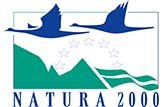Project Activities

A.1 Filling baseline gaps, setting favourable reference values and SMART conservation objectives
Involved partners: Vytautas Magnus University Agriculture Academy, Ministry of Environment of the Republic of Lithuania, Dzukija National Park and Cepkeliai Strict Nature Reserve Administration
A.2 Revision and acceleration of nature management planning process
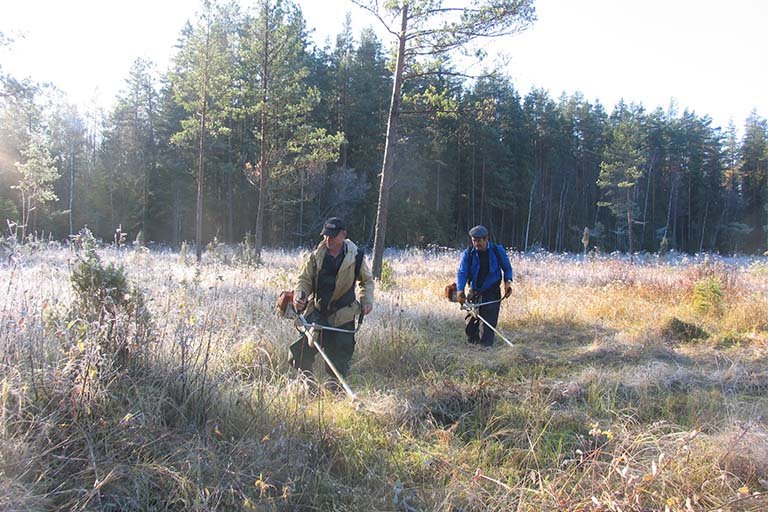
Partner-action leader: State Service for Protected Areas under the Ministry of Environment
Involved partners: Vytauto Didžiojo universiteto Žemės ūkio akademija, Lietuvos Respublikos aplinkos ministerija

A.3 Strengthening integration of nature conservation measures into Rural development programme
Partner – action leader: Ministry of Environment of the Republic of Lithuania
Involved partners: State Service for Protected Areas under the Ministry of Environment, Ministry of Agriculture of the Republic of Lithuania, NGO Baltic Environmental Forum Lithuania, National Paying Agency under the Ministry of Agriculture, Aukstaitija National Park and Labanoras Regional Park Administration, Dzukija National Park and Cepkeliai Strict Nature Reserve Administration, Zemaitija National Park Administration
A.4 Strengthening integration of nature conservation measures into forest management planning

Based on international and national scientific experience and practical testing of alternative environmental measures in the forests of Dzukija National Park, two important documents will be prepared: “Recommendations on forest habitats management in protected areas” and “Forest Management Planning Standards”. The latter document will cover standard planning procedures for each habitat and species of Community interest, depending on the type of stand.
Partner – action leader: Vytautas Magnus University Agriculture Academy
Involved partners: Ministry of Environment of the Republic of Lithuania, State Service for Protected Areas under the Ministry of Environment, Ministry of Agriculture of the Republic of Lithuania, Dzukija National Park and Cepkeliai Strict Nature Reserve Administration, NGO Baltic Environmental Forum, State Forest Enterprise
A.5 Preparatory activities for conservation works in pilot territories
Partner-action leader: NGO Baltic Environmental Forum
Involved partners: Dzukija National Park and Cepkeliai Strict Nature Reserve Administration, Aukstaitija National Park and Labanoras Regional Park Administration, State Service for Protected Areas under the Ministry of Environment
A.6 Set up of Natura 2000 Methodical analytical centre
The main tasks of the Methodical-Analytical Center are: to collect and analyze data on species and habitats of Community interest, assess their conservation status, set conservation objectives and necessary conservation measures for Natura 2000 sites, improve the nature management planning process, review existing management plans and prepare new ones. It also provides expert assistance to the responsible authorities in conducting environmental impact assessments, prepares an action plan for the protection of priority species, consults on issues of biodiversity conservation and monitoring, ensures the links of nature management with the implementation of relevant measures in other sectors, especially agriculture and forestry. The center is also responsible for the establishment of new protected areas and the repurchase of private land for nature protection purposes.
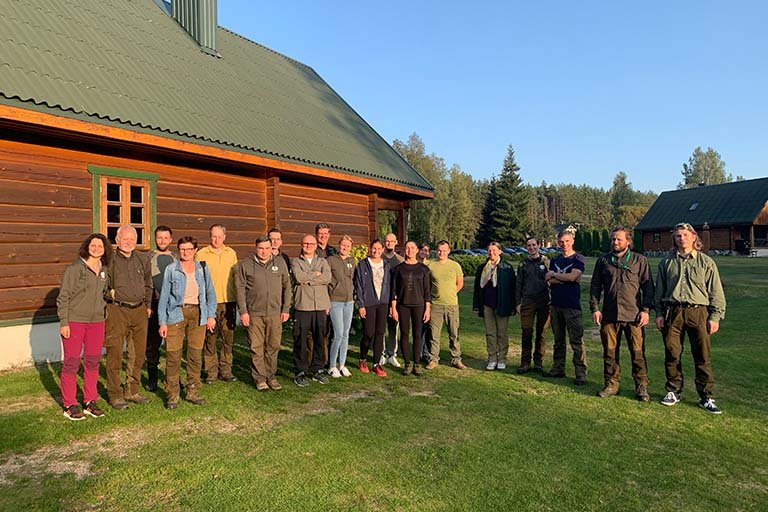
Partner-action leader: State Service for Protected Areas under the Ministry of Environment

C.1 Filling Natura 2000 network gaps: site establishment and land purchase
Partner-action leader: State Service for Protected Areas under the Ministry of Environment
Involved partners: Ministry of Environment of the Republic of Lithuania, Aukstaitija National Park and Labanoras Regional Park Administration, Zemaitija National Park Administration, NGO Baltic Environmental Forum
C.2 Pilot forest conservation management plan implementation in Dzukija National Park

Partner-action leader: Dzukija National Park and Cepkeliai Strict Nature Reserve
Involved partners: Vytautas Magnus University Agriculture Academy, State Forest Enterprise

C.3 Implementation of innovative agri-environmental schemes and its management approaches
Partner-action leader: Ministry of Environment of the Republic of Lithuania, NGO Baltic Environmental Forum
Involved partners: State Service for Protected Areas under the Ministry of Environment, Ministry of Agriculture of the Republic of Lithuania, National Paying Agency under the Ministry of Agriculture, Dzukija National Park and Cepkeliai Strict Nature Reserve Administration, Zemaitija National Park Administration
C.4 Establishment of a full cycle of maintaining Favourable Conservation Status (FCS) of wetland habitats
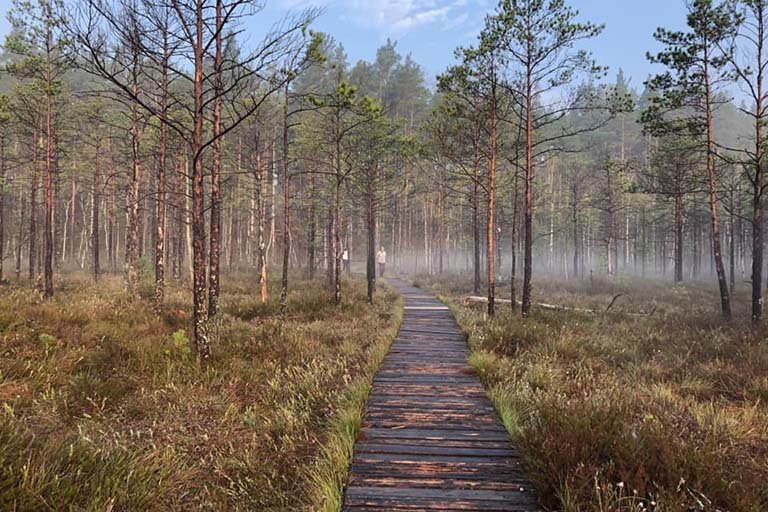
Partner-action leader: Zemaitija National Park Administration
Involved partners: State Service for Protected Areas under the Ministry of Environment

C.5 Promoting animal grazing for sustainable and economically viable management of open habitats
Parner-action leader: NGO Baltic Environmental Forum
Involved partners: State Service for Protected Areas under the Ministry of Environment, Ministry of Environment of the Republic of Lithuania, Aukstaitija National Park and Labanoras Regional Park Administration, Dzukija National Park and Cepkeliai Strict Nature Reserve Administration, Zemaitija National Park Administration
C.6 Promotion of local business benefiting from ecosystem services delivered by Natura 2000
The restoration of a valuable but damaged natural object (Grybauliai fishery ponds) in the Natura 2000 territory in Dzukija National Park and its adaptation to tourism is planned. This activity of the project will promote the development of environmentally-friendly businesses in the region – fishery, animal husbandry, nature tourism. The development of local businesses based on public-private partnerships will ensure that the multifaceted socio-economic benefits of the Natura 2000 network are recognized and, most importantly, that local communities are supported and involved in this process.
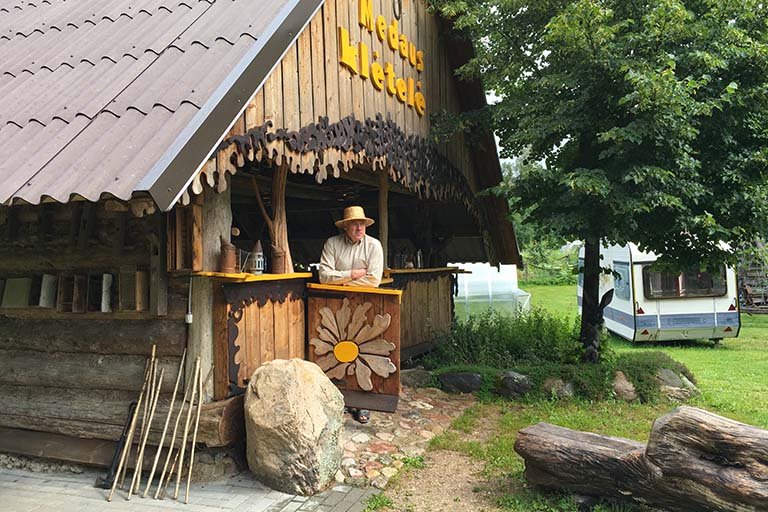
Partner-action leader: NGO Baltic Environmental Forum
Involved partners: State Service for Protected Areas under the Ministry of Environment, Ministry of Environment of the Republic of Lithuania, Dzukija National Park and Cepkeliai Strict Nature Reserve Administration

C.7 Capacity and knowledge building in development of innovative biodiversity conservation, population and habitat evaluation methods
It is also planned to test and adapt remote monitoring tools for monitoring changes in the condition of habitats and effectiveness of agri-environmental measures. If these remote measures are successful, funds will be sought for their integration into the agri-environmental administrative system, and they will be used to assess the habitats and the nature management process.
Involved partners: Ministry of Environment of the Republic of Lithuania, NGO Baltic Environmental Forum, National Paying Agency under the Ministry of Agriculture
C.8 Capacity building

Partner-action leader: Environmental Projects Management Agency under the Ministry of Environment of the Republic of Lithuania
Involved partners: State Service for Protected Areas under the Ministry of Environment, Vytautas Magnus University Agriculture Academy, Ministry of Environment of the Republic of Lithuania, Ministry of Agriculture of the Republic of Lithuania, Aukstaitija National Park and Labanoras Regional Park Administration, Dzukija National Park and Cepkeliai Strict Nature Reserve Administration, Zemaitija National Park Administration, NGO Baltic Environmental Forum, National Paying Agency under the Ministry of Agriculture.

D. Monitoring of conservation actions impact and PAF implementation
Project partners will also be responsible for the timely monitoring of the implementation of the Prioritized Actions Framework, ensuring the involvement of all stakeholders.
involved partners: Vytautas Magnus University Agriculture Academy, Ministry of Agriculture of the Republic of Lithuania, Aukstaitija National Park and Labanoras Regional Park Administration, Dzukija National Park and Cepkeliai Strict Nature Reserve Administration, Zemaitija National Park Administration, NGO Baltic Environmental Forum, Environmental Projects Management Agency under the Ministry of Environment of the Republic of Lithuania
E.1 Project visibility, dissemination of project results
In addition, communication activities include not only the dissemination of project objectives and achievements, but also provide an opportunity to transfer accumulated knowledge and experience at national and international level, thus ensuring the wider applicability and use of project results.
Partner – action leader: Environmental Projects Management Agency under the Ministry of Environment of the Republic of Lithuania
Involved partners: Aukstaitija National Park and Labanoras Regional Park Administration, Dzukija National Park and Cepkeliai Strict Nature Reserve Administration, Zemaitija National Park Administration, State Service for Protected Areas under the Ministry of Environment, Ministry of Environment of the Republic of Lithuania, NGO Baltic Environmental Forum, Vytautas Magnus University Agriculture Academy, Ministry of Agriculture of the Republic of Lithuania.


E.2 Awareness raising about Natura 2000 and ecosystem services in Lithuania
Partner – action leader: NGO Baltic Environmental Forum
Involved partners: Aukstaitija National Park and Labanoras Regional Park Administration, Dzukija National Park and Cepkeliai Strict Nature Reserve Administration, Zemaitija National Park Administration, State Service for Protected Areas under the Ministry of Environment, Environmental Projects Management Agency under the Ministry of Environment of the Republic of Lithuania
E.3 Experience exchange and replication

Partner – action leader: Environmental Projects Management Agency under the Ministry of Environment of the Republic of Lithuania
Involved partners: Aukstaitija National Park and Labanoras Regional Park Administration, Dzukija National Park and Cepkeliai Strict Nature Reserve Administration, Zemaitija National Park Administration, State Service for Protected Areas under the Ministry of Environment, Ministry of Environment of the Republic of Lithuania, NGO Baltic Environmental Forum, Vytautas Magnus University Agriculture Academy

F.1 Overall project management and administration
Involved partners: Aukstaitija National Park and Labanoras Regional Park Administration, Dzukija National Park and Cepkeliai Strict Nature Reserve Administration, Zemaitija National Park Administration, State Service for Protected Areas under the Ministry of Environment, Ministry of Environment of the Republic of Lithuania, NGO Baltic Environmental Forum, Vytautas Magnus University Agriculture Academy, Ministry of Agriculture of the Republic of Lithuania, National Paying Agency under the Ministry of Agriculture, State Forest Enterprise
F.3 Revision of PAF

Involved partners: State Service for Protected Areas under the Ministry of Environment, Environmental Projects Management Agency under the Ministry of Environment of the Republic of Lithuania
